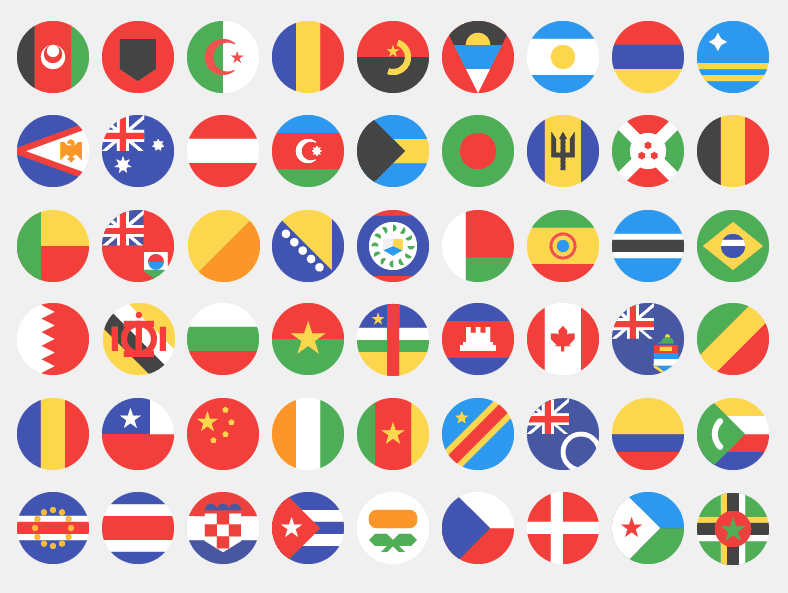

1.
Rarely does the name by which a people call their own country (endonym) correspond to the name by which the country is known by other people (exonym). There are constantly at least small discrepancies in pronunciation and writing. Brazil, for example, is Brazil for Americans, Brazil for the French and Brasilien To the tedescos.
Sometimes the difference is even smaller. The capital of France (France, Francia, Frankreich) It is Paris, both in Portuguese, English and also in French itself. But the pronunciation in English is more or less Péris and, in French, Parri. In the same way, Mexico in English it is Mexico, but the pronunciation is something like Meksico.
Often, therefore, differences in the names of some countries and cities derive solely from small phonetic and spelling differences between different languages.
2.
Other times the differences are greater. You United States saw U.S, États-Unis, Stati Uniti e Vereinigte Staaten. Cote d'Ivoire will come Costa do Marfim or Ivory Coast. The pronunciation and writing have nothing to do with the original names, but are, of course, translations of them.
This is another way of generating very different names to refer to the same region: literal translations.
That's why, Netherlands turned Netherlands. But that's not the name by which most people know the land of Gouda cheese, wooden clogs and free marijuana. This land is called Netherlands.
3.
Holland it was the richest area of the Netherlands at the time of colonialism and, as a result, it came to be used as a synonym for the entire kingdom. Today, there are two provinces called South Holland (Zuid-Holland) and North Holland (Noord-Holland). In the province of North Holland is the Dutch capital, Amsterdam, which is home to interesting things like Anne Frank's basement, the original Heineken factory and the Red Light District.
Netherlands will come Netherlands in English, Pays-Bas in French and Paesi Bassi or Olanda in Italian.
In addition to the literal translation, the name of the Netherlands is different between various languages because some of them use a region of the Netherlands to refer to the State as a whole. This is a little similar to what happens with Germany.
In English, someone born in the Netherlands is Dutch. Dutch has the same origin as German, what is German in German. The origin of these terms is the word diutisc, from Old High German, which meant something like “for the people”. Hence the German endonym, Deutschland, and the Dutch exonym for Germany, Duitsland.
This is also the origin of the word tedesco, what is German in Italian. Curiously, Germany in Italian it is Germania, nothing to do with tedesco. This name derives from germanus, name used by the Romans around the last century before Christ to describe a group of Germanic tribes in northern Gaul, in what is now Holland, Belgium, Luxembourg and northwestern Germany.
Already Germany, Allemagne e Almanya come from the name of the Alemanni people, a Germanic tribe that inhabited southern Germany, Switzerland and northeastern France. I.e, Germania e Germany They originally referred to Germanic tribes living in part of present-day Germany, and today they are used to refer to the country as a whole.
4.
Another way to name a country is with pejorative terms. The Polish term for Germany is Niemcy, which comes from Proto-Slavic for “mute”, also with the meaning of “powerless”, “weak”. In Maori language, the name of France is Wiwi, in imitation of the expression oui, oui ("yes yes").
5.
We can also name countries according to their own characteristics: South Africa, because it is in the south, and Australia, for the same reason, or Iceland, the land of ice. We can also lie: Greenland in English it is Greenland, “green land”, for a region full of snow (although this name may have just been a translation error).6. Countries can still be named after typical objects. Want an example? Brazil, made of brazilwood, a wood with a red color (like embers). The person who gave our country its name was Portugal, which in the Modern Age was a pioneer in trade between Europe and several colonies in the Americas and the East. Portugal transported and sold all kinds of things: from fabrics to oranges. Until today, orange in Arabic it is burtuqal and in Greek it is portokáli.